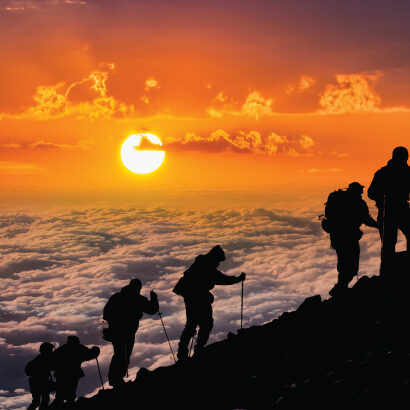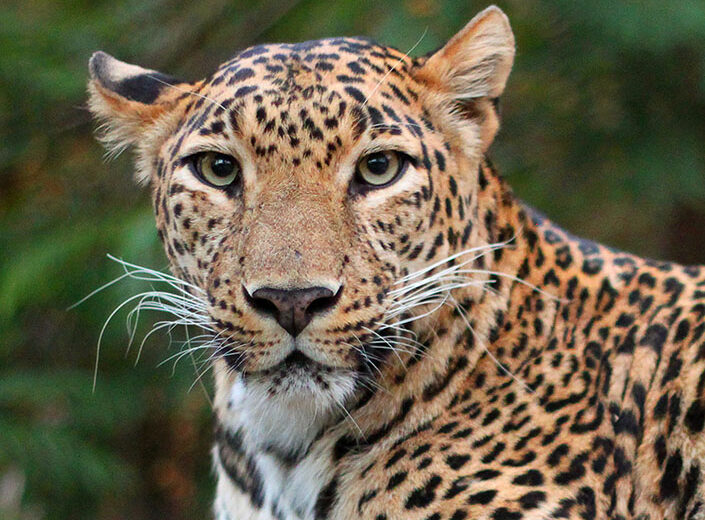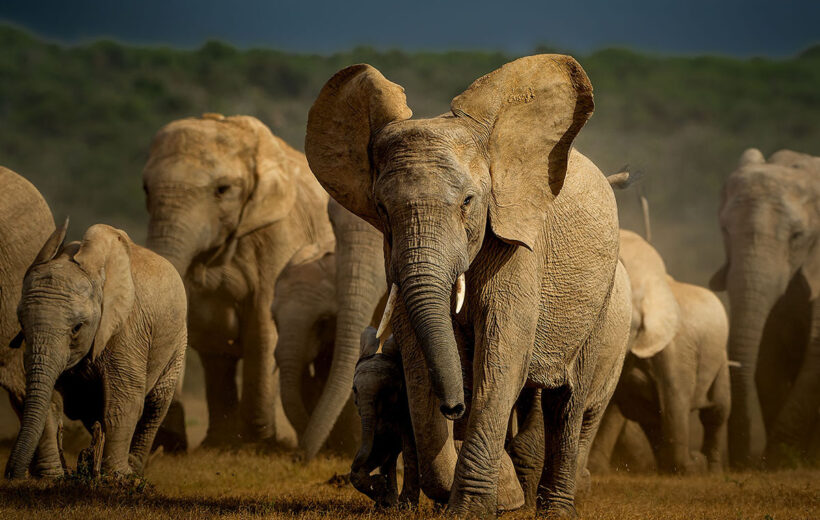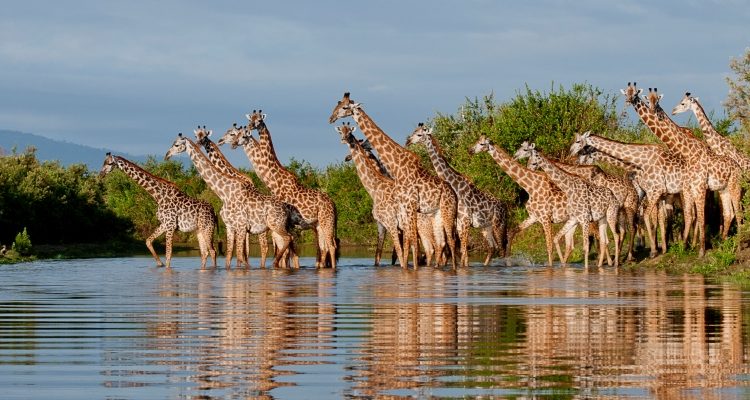Pemba Island
Pemba Island
Pemba Island, often referred to as "The Green Island," is the smaller of the two main islands in the Zanzibar Archipelago, the other being Unguja (commonly known as Zanzibar Island). Pemba Island is a hidden gem in the Indian Ocean, offering a more secluded and untouched destination for travelers seeking natural beauty, tranquility, and cultural experiences. Here's an overview of Pemba Island:
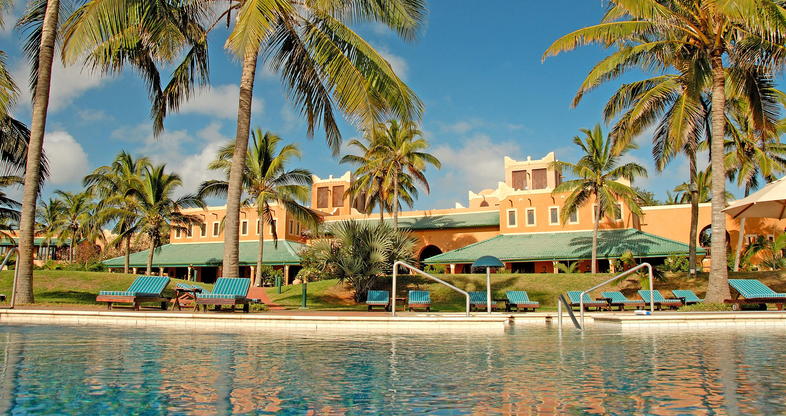
Key features of Pemba Island
Natural Beauty:
Lush Landscapes: Pemba Island is known for its lush, green landscapes, hilly terrain, and fertile soil. The island's interior is covered in dense forests and agricultural plantations, making it a haven for nature enthusiasts and hikers.
Coastal Charms: Pemba Island boasts a stunning coastline with white sandy beaches, clear turquoise waters, and a thriving coral reef system. The island's coast offers excellent opportunities for snorkeling, diving, and water sports.
Coral Reefs: The island's coral reefs are some of the healthiest and most vibrant in the Indian Ocean. The mesmeric underwater world is a paradise for divers and snorkelers, with diverse marine life, colorful corals, and underwater caves to explore.
Best Time to Visit
- Overview
- Things To Do
- Dry Season
- Coral Reef
- Cultural Experiences
- Avoiding Crowds
- Accommodation
- How To Get There
The best time to visit Pemba Island, also known as “The Green Island,” depends on your preferences and the type of experience you’re seeking. Pemba Island experiences a tropical climate, with distinct wet and dry seasons. Here’s a breakdown of the best times to visit:
-
Dry Season (June to October): This is generally considered the best time to visit Pemba Island. The weather is dry and pleasant, with lower humidity and cooler temperatures. During this period, you can expect clear skies and calm seas, making it ideal for water-based activities like diving, snorkeling, and sailing. Wildlife is more active, and it’s an excellent time for hiking in the lush interior of the island. July and August are particularly popular months.
-
Shoulder Seasons (November and May): The transition months between the wet and dry seasons can offer a good compromise for travelers. These months see less tourist traffic, and the weather is generally pleasant, although there may be occasional rainfall. November is known as the “short rains” season, while May marks the start of the “long rains.” If you don’t mind a few showers and prefer quieter surroundings, these months can be a good choice.
-
Wet Season (December to April): The wet season, particularly from December to March, can be hot and humid with heavy rainfall. It’s not the ideal time for beach activities or water sports, as sea conditions can be rough, and visibility underwater may be reduced. However, this period is when the island is at its lushest and greenest. If you’re interested in birdwatching, lush landscapes, and lower accommodation rates, this season may be suitable.
Remember that Pemba Island’s climate can be unpredictable, and the onset and duration of the rainy season can vary from year to year. If you’re planning a visit during the wet season, be prepared for occasional rain showers and have flexibility in your travel plans.
Overall, the dry season, from June to October, offers the best weather and conditions for enjoying the island’s natural beauty, pristine beaches, and underwater activities. However, if you prefer a quieter and more budget-friendly experience, consider visiting during the shoulder seasons when the island is less crowded, and the weather is still pleasant.
Pemba Island, part of the Zanzibar Archipelago, offers a range of activities and attractions that cater to nature enthusiasts, adventure seekers, and those looking for a tranquil tropical getaway. Here are some of the top things to do on Pemba Island:
-
Diving and Snorkeling:
- Pemba Island is renowned for its pristine coral reefs and diverse marine life. Explore underwater wonders at sites like Misali Island and Fundo Island Marine Reserves, where you can encounter vibrant coral gardens, sea turtles, dolphins, and an array of tropical fish.
-
Traditional Dhow Sailing:
- Experience the ancient art of dhow sailing on a traditional wooden sailing vessel. These excursions provide a unique and tranquil way to explore the island’s crystal-clear waters.
-
Mangrove Forest Exploration:
- Discover the island’s mangrove forests by kayak or boat. This eco-adventure allows you to observe diverse bird species, including kingfishers and sunbirds, and experience the rich biodiversity of the mangroves.
-
Ngezi Forest Reserve:
- Explore this protected rainforest and nature reserve. Take guided forest walks to witness unique flora and fauna, including Pemba flying foxes, a critically endangered fruit bat species.
-
Cultural Experiences:
- Visit local villages, interact with residents, and immerse yourself in Swahili and Pemban cultures. Don’t miss the chance to explore historical sites, such as the Chwaka Ruins, Pujini Ruins, and the ancient town of Chake Chake.
-
Whale Shark and Dolphin Watching:
- Depending on the season, you can join guided tours to spot whale sharks and dolphins in the surrounding waters. These gentle giants and playful dolphins offer thrilling encounters.
-
Hiking and Nature Walks:
- Pemba Island’s lush interior is a haven for nature lovers and hikers. The island’s rolling hills and dense forests provide opportunities for scenic hikes and birdwatching.
-
Spice Tours:
- Pemba Island has a long history of spice cultivation. Take a spice tour to learn about the island’s cloves, vanilla, and other aromatic crops. The fragrant spice plantations offer an engaging sensory experience.
-
Relax on Secluded Beaches:
- Pemba Island offers idyllic, less-crowded beaches where you can unwind and enjoy the peaceful surroundings. Mawimbini Beach, Vumawimbi Beach, and Ras Kiuyu Beach are among the popular options.
-
Sunset Cruises:
- Enjoy a serene sunset cruise along the island’s coastline. Watching the sun dip below the horizon while aboard a traditional dhow is a magical experience.
-
Deep-Sea Fishing:
- For anglers, Pemba Island offers opportunities for deep-sea fishing. Test your skills in catching big game fish, such as marlin, sailfish, and tuna.
-
Visit Nearby Islets:
- Explore the small islets surrounding Pemba Island, such as Misali Island, which is part of a marine reserve, and Fundo Island, known for its snorkeling opportunities.
Pemba Island offers a rich blend of marine and terrestrial experiences, cultural interactions, and natural beauty. Whether you’re an adventure enthusiast or seeking a tranquil retreat, Pemba Island has something to offer every type of traveler.
Pemba Island experiences a tropical climate with distinct wet and dry seasons. The dry season, also known as the “kaskazi” season, generally extends from June to October. During this period, the weather is characterized by the following conditions:
-
Low Rainfall: The dry season is marked by minimal rainfall. While Pemba Island does receive some scattered showers even during this season, they are infrequent and generally light. This limited rainfall creates a dry and comfortable atmosphere, making it an ideal time for outdoor activities.
-
Mild Temperatures: The dry season brings cooler and more comfortable temperatures compared to the hot and humid wet season. Daytime temperatures typically range from 25°C to 28°C (77°F to 82°F), providing pleasant conditions for exploring the island.
-
Clear Skies: The dry season is characterized by clear skies and abundant sunshine. These conditions are perfect for enjoying beach days, water sports, and outdoor adventures without the threat of rain.
-
Calm Seas: Sea conditions are generally calm during the dry season, making it an excellent time for diving, snorkeling, and boat excursions. The visibility underwater is typically at its best, allowing you to fully appreciate the marine life and coral reefs.
-
Wildlife Viewing: The drier conditions of the dry season often lead to increased wildlife activity. Birdwatching and animal sightings, both on land and in the water, are more common during this period.
-
Less Humidity: The dry season is associated with lower humidity levels, making the climate more comfortable for travelers who may find the high humidity of the wet season less appealing.
-
Optimal for Outdoor Activities: Whether you’re interested in hiking, exploring the forests, or embarking on cultural excursions, the dry season provides ideal conditions for a wide range of outdoor activities.
-
Peak Tourist Season: The dry season is the most popular time to visit Pemba Island, attracting a higher number of tourists. As a result, accommodations and activities may be in greater demand, and prices can be higher. It’s advisable to book accommodations and activities well in advance if you plan to visit during this peak season.
Overall, the dry season in Pemba Island offers a pleasant and welcoming environment for travelers. The combination of beautiful weather, clear skies, and calm seas makes it the preferred time for enjoying the island’s pristine beaches, marine activities, and lush landscapes. However, be prepared for slightly higher prices and the potential for more tourists during this period, especially in July and August.
-
The coral reefs around Pemba Island are among the most biodiverse and pristine in the world, making the island a renowned destination for snorkeling and diving enthusiasts. These underwater ecosystems are teeming with vibrant marine life and stunning coral formations. Here’s an overview of the coral reefs in Pemba Island:
-
Diversity of Coral Species: Pemba Island’s reefs are home to a remarkable diversity of hard and soft coral species. The fringing reefs, barrier reefs, and patch reefs provide a variety of habitats for these corals to thrive. You’ll encounter massive brain corals, delicate gorgonians, and colorful soft corals that create a spectacular underwater landscape.
-
Vibrant Marine Life: The coral reefs support an array of marine species, from tiny colorful fish to larger predators. Snorkelers and divers can spot schools of butterflyfish, parrotfish, angelfish, and surgeonfish, among many others. The reefs are also known for hosting larger marine life, including reef sharks, turtles, and rays.
-
Coral Gardens: Some areas around Pemba Island are renowned for their coral gardens, where you’ll find intricate coral formations that resemble underwater forests. The coral gardens offer mesmerizing underwater landscapes, and they’re perfect for photography and exploration.
-
Healthy Ecosystems: Pemba Island’s coral reefs are celebrated for their health and resilience. Conservation efforts have played a crucial role in preserving these ecosystems, and local authorities have established marine reserves to protect the coral and marine life. As a result, the reefs remain vibrant and are considered a model for sustainable coral conservation.
-
World-Class Diving Sites: Pemba Island boasts world-class diving sites, including the Pemba Channel, Fundo Island Marine Reserve, and Misali Island Marine Reserve. These sites offer diverse topographies, underwater caves, drop-offs, and unique marine encounters, making them popular choices for divers of all levels.
-
Snorkeling Paradise: Snorkeling around Pemba Island is equally rewarding, as the clear waters and shallow reefs provide excellent visibility for snorkelers. Even in relatively shallow areas, you’ll encounter an abundance of marine life and coral formations.
-
Conservation Efforts: Local organizations and communities, along with international conservation groups, are dedicated to preserving Pemba Island’s coral reefs. Initiatives include coral gardening, marine patrols, and education programs to raise awareness about the importance of coral reef conservation.
-
Coral Bleaching Awareness: While the reefs in Pemba Island are generally healthy, there is always a concern about the potential impacts of coral bleaching due to rising sea temperatures. Conservationists and researchers continue to monitor and study the reefs to understand their resilience and adaptability.
Pemba Island’s coral reefs are a testament to the island’s commitment to preserving its natural beauty and the importance of responsible tourism. Whether you’re a diver, snorkeler, or simply someone who appreciates the wonders of the underwater world, the coral reefs of Pemba Island offer a captivating and awe-inspiring experience.
-
Pemba Island, part of the Zanzibar Archipelago in Tanzania, offers a rich cultural tapestry that reflects the island’s historical influences, primarily stemming from Swahili, Arab, and Indian traditions. Engaging in cultural experiences on Pemba Island provides a unique opportunity to connect with its heritage and the warm and welcoming local community. Here’s what you can expect from a cultural exploration of Pemba Island:
-
Historical Sites: Pemba Island is home to various historical sites and ruins that speak to its rich past. Explore places like the Chwaka Ruins, which are remnants of an ancient Swahili town, and the Pujini Ruins, which offer a glimpse into the island’s pre-colonial history. These sites provide insights into the island’s once-thriving trading history.
-
Swahili Architecture: Walk through the streets of Chake Chake, the island’s main town, and discover the Swahili architecture that characterizes the buildings. Elaborate wooden doors, ornate balconies, and intricately designed houses showcase the island’s Swahili heritage.
-
Cultural Festivals: Depending on your visit timing, you may have the opportunity to participate in local festivals and events. The Mwaka Kogwa festival, celebrated in July, is a fascinating event featuring traditional rituals, music, and dance. The cultural heritage is deeply rooted in the celebration, offering an authentic experience.
-
Local Markets: Explore the bustling local markets, such as Chake Chake Market, to experience the daily life of the residents. You can find fresh produce, spices, handicrafts, and interact with the friendly traders. Don’t forget to try the island’s aromatic spices, including cloves and vanilla.
-
Traditional Crafts: Pemba Island is known for its traditional crafts. Artisans create intricately designed pottery, intricately woven baskets, and colorful khangas (traditional fabric). Visit local workshops to see how these crafts are made and even try your hand at crafting.
-
Spice Tours: Spice cultivation is an integral part of the island’s culture and economy. Take a guided spice tour to learn about the cultivation of cloves, vanilla, and other aromatic spices. You’ll gain an appreciation for the island’s agricultural traditions.
-
Cuisine: Explore the island’s culinary traditions by savoring local dishes like pilau (spiced rice), coconut-based curries, and seafood. Many accommodations offer Swahili-themed dining experiences where you can enjoy traditional dishes.
-
Cultural Performances: Enjoy traditional music and dance performances, which often feature energetic taarab music and the rhythmic chakacha dance. These performances are not only entertaining but also provide a window into the island’s culture.
-
Local Interaction: The people of Pemba Island are known for their warmth and hospitality. Engage in conversations with locals, visit their homes, and gain a deeper understanding of their way of life. Learning a few words in Kiswahili, the local language, can also enhance your cultural experience.
-
Homestays: For an immersive cultural experience, consider staying in a local homestay. This allows you to live with a Pemban family, participate in daily activities, and gain a profound appreciation for their culture.
Cultural experiences on Pemba Island provide a profound sense of connection with the island’s history and people. It’s an opportunity to step back in time and embrace the traditions and customs that have shaped the island’s identity. Whether you’re exploring historical sites, participating in cultural festivals, or savoring local cuisine, Pemba Island offers an enriching cultural journey.
Pemba Island, with its serene and less touristy atmosphere compared to its neighbor, Zanzibar, is naturally less crowded. However, if you want to further enhance your experience and avoid crowds, here are some tips:
-
Travel During the Off-Peak Season: Visit Pemba Island during the shoulder or low season, which typically falls outside the dry season. November to May is the wet season, with fewer tourists. While it may rain occasionally, you’ll benefit from reduced prices and quieter surroundings.
-
Mid-Week Travel: If your schedule allows, plan your travel for mid-week rather than weekends. Weekends often see an influx of domestic tourists. Mid-week travel can provide a more peaceful experience.
-
Stay in Boutique Accommodations: Consider staying in smaller, boutique lodges and eco-friendly resorts. These properties often have limited capacity and provide a more secluded atmosphere compared to larger resorts.
-
Book Accommodations in Advance: While smaller accommodations offer intimacy, they may also have limited availability. Secure your lodging well in advance to ensure you have your preferred choice and to avoid disappointment.
-
Opt for Less Touristy Areas: Explore areas that are less frequented by tourists. While Misali Island and Fundo Island are popular dive spots, there are other secluded snorkeling sites to discover.
-
Plan Early Morning or Late Afternoon Activities: Arrange activities like snorkeling, diving, or island tours for early morning or late afternoon. Crowds are often thinner during these times.
-
Private Tours: Consider private tours or guided experiences rather than group tours. Private tours offer a more personalized experience and allow you to explore at your own pace.
-
Engage with Local Culture: Interact with local communities, visit small villages, and participate in cultural experiences. These interactions often take you off the beaten path and away from tourist crowds.
-
Explore Lesser-Known Islands: Pemba Island is surrounded by smaller islets, some of which receive fewer visitors. Explore these hidden gems to escape the hustle and bustle.
-
Extended Stay: Consider a longer stay on the island. This allows you to enjoy Pemba at a more relaxed pace and venture off the well-trodden paths.
-
Respect Nature and Local Culture: Be a responsible traveler by respecting the environment and local customs. Engaging in sustainable tourism helps preserve the island’s beauty and cultural heritage.
-
Check Local Events: Check if there are local events or festivals happening during your visit. While this may attract more people, it can also provide a unique cultural experience.
Remember that Pemba Island is known for its tranquility, and even during the peak season, it is less crowded than many other tourist destinations. By following these tips and embracing the island’s peaceful ambiance, you can enhance your experience and enjoy a more secluded getaway
Accommodation options on Pemba Island cater to a range of preferences, from luxury resorts to boutique lodges and eco-friendly establishments. Whether you’re seeking a tranquil beachfront retreat, a culturally immersive experience, or a romantic hideaway, Pemba Island has something to offer. Here’s an overview of accommodation choices on the island:
-
Luxury Resorts: Pemba Island boasts a few upscale resorts that offer an exquisite blend of comfort, indulgence, and natural beauty. These resorts typically provide spacious villas or bungalows with private plunge pools, direct beach access, and stunning ocean views. They often feature amenities like spa facilities, gourmet dining, water sports, and wellness programs.
-
Boutique Lodges: Several boutique lodges and eco-friendly accommodations are nestled on the island, providing an intimate and immersive experience. These lodges may offer charming bungalows or cottages with traditional Swahili architecture, allowing you to connect with the island’s culture. They often emphasize sustainability and offer activities like nature walks and cultural interactions.
-
Beachfront Bungalows: Pemba Island is renowned for its serene and unspoiled beaches. You can find beachfront bungalows that offer direct access to the shoreline, creating a peaceful and intimate ambiance. These accommodations are often favored by travelers seeking seclusion and tranquility.
-
Homestays: For a more authentic cultural experience, consider staying with local families in homestays. This option allows you to immerse yourself in the daily life of Pemban communities, learn about their traditions, and enjoy homemade meals. It’s a unique way to explore the island’s culture.
-
Diving Resorts: Pemba Island is a hotspot for diving enthusiasts. Some resorts cater specifically to divers, offering easy access to dive sites, experienced instructors, and dive packages. These resorts are designed to accommodate divers and snorkelers seeking underwater adventures.
-
Eco-Friendly Lodges: Pemba Island is dedicated to sustainable tourism. Many lodges and accommodations follow eco-friendly practices, from solar-powered energy sources to waste reduction initiatives. These places offer you a guilt-free way to enjoy the island’s natural beauty.
-
Spa and Wellness Retreats: Some accommodations focus on wellness and relaxation, providing spa and wellness facilities, yoga programs, and wellness retreats. These resorts are ideal for those looking to rejuvenate their mind, body, and spirit.
-
Island Resorts: Pemba Island offers a few private island resorts located on smaller islets near the main island. These exclusive resorts are accessible by boat and provide an intimate and secluded island experience.
-
Budget-Friendly Options: While Pemba Island is known for its upscale accommodations, you can also find budget-friendly options, such as guesthouses and small inns. These provide basic amenities and allow you to explore the island without breaking the bank.
-
Glamping: Some resorts and lodges on the island offer glamorous camping (glamping) experiences. These accommodations combine the rustic charm of camping with modern comforts, often set in picturesque natural surroundings.
When booking accommodation on Pemba Island, consider your travel style, budget, and the type of experience you’re seeking. Regardless of your choice, you’ll have the opportunity to enjoy the island’s breathtaking landscapes, coral reefs, and rich cultural heritage. Be sure to book in advance, especially during the peak tourist season, to secure your preferred lodging.
Getting to Pemba Island typically involves a combination of air and sea travel, as the island is located off the coast of Tanzania. Here’s how to reach Pemba Island:
By Air:
-
International Flights: If you are traveling from abroad, your journey will likely start with an international flight to Julius Nyerere International Airport (DAR) in Dar es Salaam or Abeid Amani Karume International Airport (ZNZ) on Zanzibar Island. Alternatively, you can also fly to Kilimanjaro International Airport (JRO) near Arusha.
-
Domestic Flight to Pemba: From Dar es Salaam or Zanzibar, you can catch a domestic flight to Pemba Island. There are several daily flights between these airports and Pemba’s Chake Chake Airport (PMA). The flight duration is approximately 1 to 1.5 hours.
By Sea:
- Ferry from Zanzibar: If you are already on Zanzibar Island, you can take a ferry to Pemba Island. The ferry ride between Unguja (Zanzibar’s main island) and Pemba’s Mkoani Port is a scenic journey that takes several hours. The schedules can vary, so it’s advisable to check with the ferry companies for departure times and availability.
Additional Tips:
- Be sure to check the latest flight and ferry schedules and make reservations in advance, especially during the peak tourist season.
- Arriving at Chake Chake Airport or Mkoani Port, you can easily reach your accommodation by taxi or arranged transfers.
- Pemba Island is well-connected with the mainland of Tanzania and Zanzibar, but schedules can change, so it’s a good idea to confirm your travel arrangements closer to your departure date.
- Traveling with important documents, such as your passport and visa, is essential for international travelers.
- Keep an eye on luggage restrictions and weight limits, especially for domestic flights, as they can vary between airlines.
Pemba Island offers a tranquil and idyllic escape, with its pristine beaches, coral reefs, and cultural experiences. Whether you’re arriving by air or sea, the journey to Pemba Island sets the stage for a memorable and off-the-beaten-path adventure.

